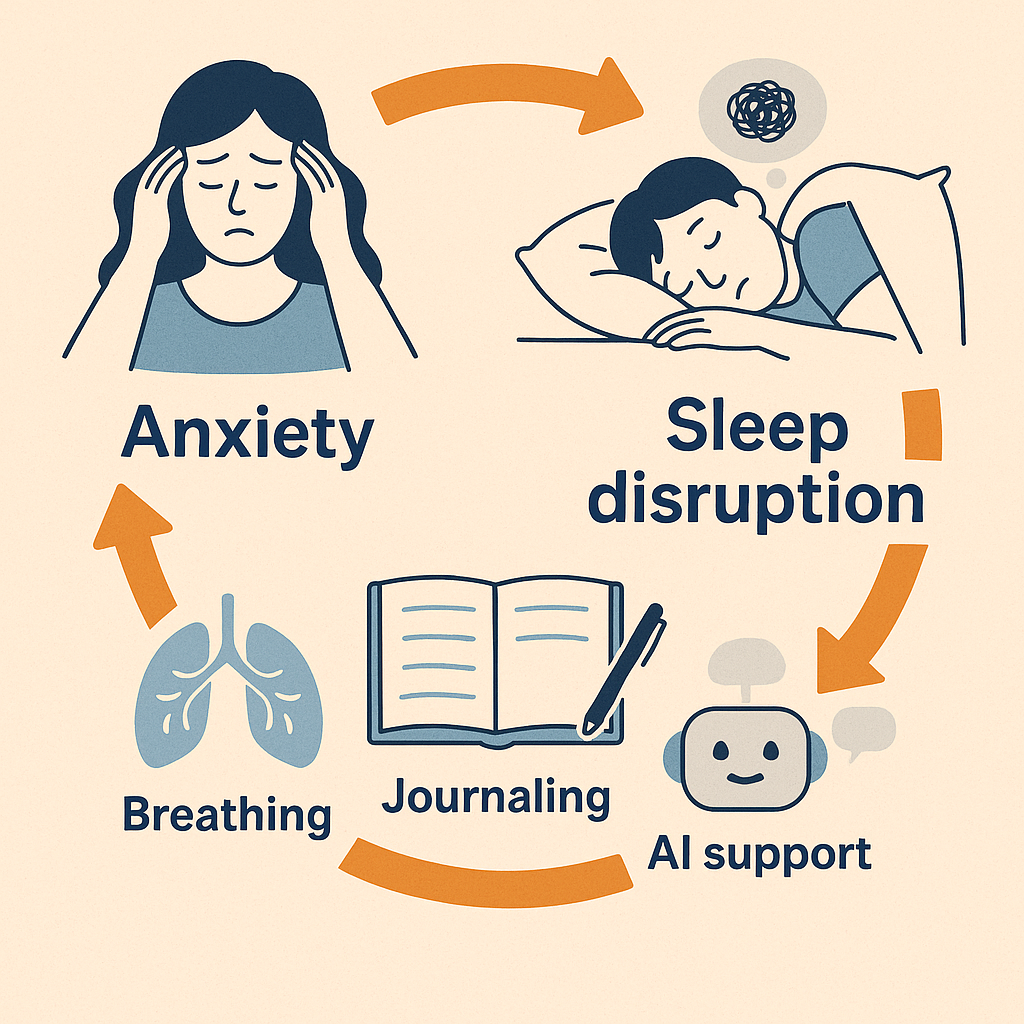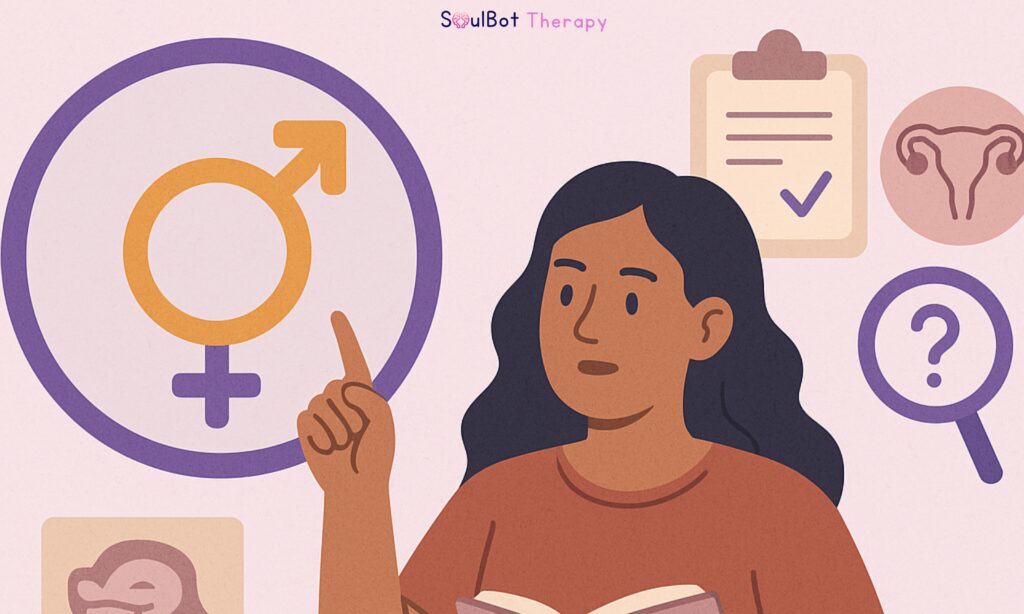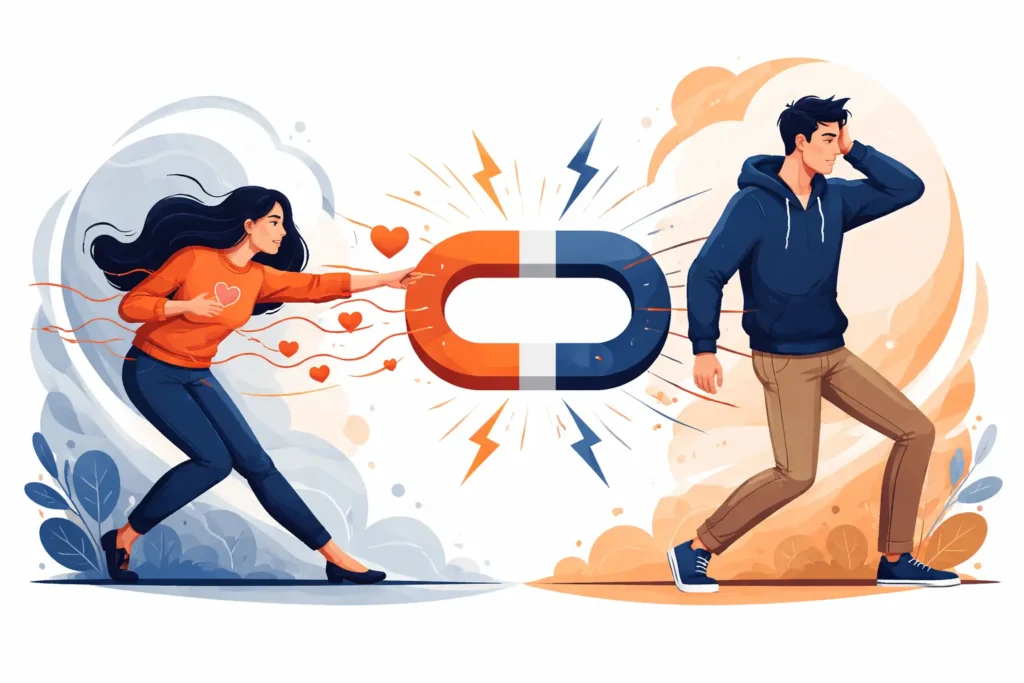You’re not alone if you’ve ever laid awake at 2 AM, your heart racing, your thoughts spiraling, and your sleep nowhere in sight.
Sleep and anxiety are deeply connected, and together, they create a cycle that can feel impossible to break.
This blog explores why anxiety hijacks your sleep, how poor sleep worsens your anxiety, and what you can do about it starting tonight.
😣 Can Anxiety Disrupt Sleep?
Yes, and in more ways than one.
When anxiety activates your fight-or-flight system, your brain releases cortisol (the stress hormone), keeping you alert even when your body’s exhausted.
Signs Your Sleep Is Being Affected by Anxiety:
- You dread bedtime because it means facing your thoughts
- You fall asleep but wake up often in a panic
- You’re tired all day but wired at night
- You feel mentally foggy and emotionally on edge the next day
🧠 According to the Sleep Foundation, people with anxiety are up to 3x more likely to struggle with chronic insomnia.
🔄 Breaking Down the Anxiety–Sleep Cycle
Let’s look at what happens when sleep and anxiety feed into each other:
| Time | What Happens |
|---|---|
| Evening | Anxiety builds up → intrusive thoughts spike |
| Bedtime | Mind races → heart rate stays elevated |
| Sleep | Delayed sleep onset or restless waking |
| Morning | Poor sleep → lower emotional resilience |
| Daytime | Fatigue fuels irritability + more anxiety |
This cycle continues… unless interrupted.

😴 Why Is My Sleep and Anxiety Worse at Night?
Because the distractions are gone.
Your brain has space to overanalyze, overthink, and replay every embarrassing or stressful moment.
Triggers Include:
- Fear of the next day
- Relationship conflict replay
- Overwhelmed by your to-do list
- Guilt over rest itself (Yes, that’s a thing)
🌀 It’s not your fault. Your mind is trying to protect you, but you don’t know how to switch it off.
💡 5 Science-Backed Ways to Break the Sleep-Anxiety Loop
1. Create a “Mental Buffer Zone”
Stop working or doom-scrolling at least 1 hour before bed. This tells your brain the danger is over and sleep is safe.
Try: SoulBot’s nightly journaling prompts for emotional unwinding.
2. Do a Pre-Sleep “Thought Dump”
Write down what’s bothering you, without trying to fix it.
Externalizing your fears reduces their power.
📝 Pro tip: List 3 things that went okay today, even if small.
3. Focus on Body-Based Calm
You can’t “think” your way out of anxiety, but you can calm your body:
- Try 4-7-8 breathing
- Tense and release each muscle group
- Do slow stretching or lie with your legs up on the wall
4. Rewrite Your Sleep Narrative
Instead of “I have to sleep or tomorrow’s ruined,” try:
“Resting is still valuable. I don’t need perfect sleep to be okay.”
This shift reduces pressure, which ironically helps sleep happen.
5. Use AI Mental Health Support (Like SoulBot)
Sometimes, we need a non-judgmental space to process the day, especially at night.
With SoulBot, you can:
- Track anxiety spikes and patterns
- Get sleep-focused affirmations and calming audio
- Journal guided by AI based on your test results
- Create your sleep rituals
💤 Take the Sleep Quality Test
Find out how your anxiety may affect your rest, and get personalized insights from SoulBot to fix your sleep cycle.
🧘♀️ Sleep is not a luxury. It’s your right. Let’s reclaim it — one deep breath at a time.
🌙 Final Thoughts: Break the Cycle, Don’t Let It Break You
If you’re stuck in the loop of sleep and anxiety, know this: you’re not broken. You’re not lazy. And you’re certainly not alone.
Your brain is wired for protection, not peace, but with awareness, support, and the right habits, you can regain control of your nights.
Start small. One deep breath. One journal entry. One test with SoulBot.
🛌 Because restful sleep isn’t just a wellness trend it’s the foundation of your mental health.








